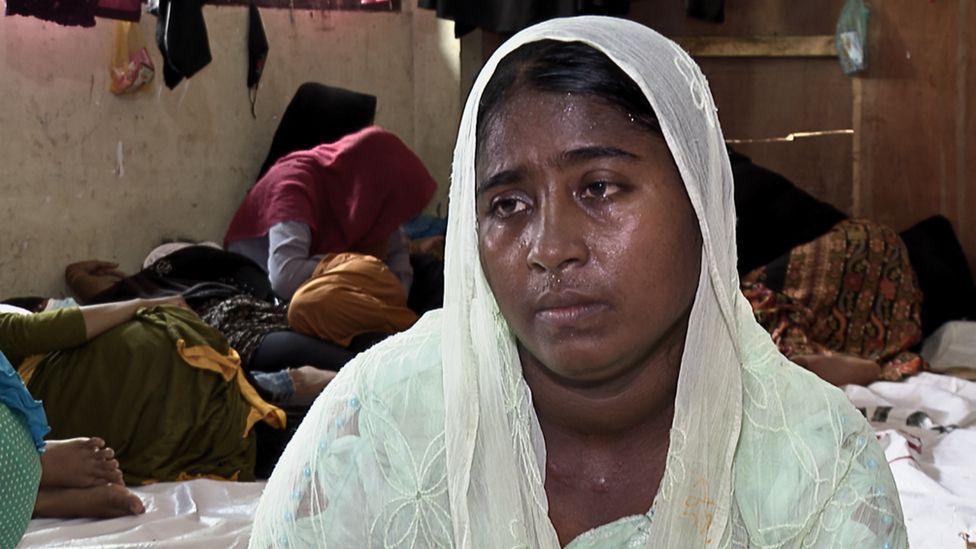-

-
-
Loading

Loading

Yasmin Fatoum left Bangladesh's Cox's Bazaar, the world's largest refugee camp for Rohingya Muslims, with her two young children in the hopes of finding a better life in Indonesia. However, her journey turned into a nightmare when angry villagers blocked their boat and forced it back to sea multiple times. Videos show a local man threatening the refugees, and Fatoum tragically lost one of her children during the ordeal. Eventually, the boat was allowed to dock, but three other babies on board had already died due to illness and lack of food. Fatoum is now among 1,087 Rohingya refugees in Aceh, Indonesia. The province currently hosts around 1,200 Rohingya, half of whom are children. The Rohingya are an unwanted ethnic minority in Myanmar and faced a campaign of violence that the UN characterized as a possible genocide. Fatoum and her son are currently staying in an unused immigration office turned temporary shelter. However, the locals in Aceh remain unwelcoming, claiming that unmarried Rohingya couples staying together go against their conservative Muslim beliefs. They also accuse the refugees of not maintaining cleanliness in the camps. Locals see Indonesia as a mere transit stop for the refugees on their way to Malaysia and believe the refugees are ungrateful for their assistance. Unfortunately, many Rohingya refugees have resorted to paying people smugglers large sums to take them from Bangladesh to Indonesia and then to Malaysia, where they often become illegal workers. Authorities have arrested individuals involved in smuggling operations, highlighting how smuggling networks are exploiting Indonesia's provision of shelters. Aceh has been seeing Rohingya boat arrivals since 2015, but there has been an increase in frequency since Myanmar's military coup in 2021. More boats are expected to arrive in the coming months. The deteriorating security situation in Cox's Bazaar has led to an increase in Rohingya escaping, as confirmed by the UN High Commission on Refugees representative in Indonesia. Indonesia accepts Rohingya refugees for humanitarian reasons, although it is not obligated to do so as it is not a signatory to the UN's Refugee Convention. The country views the shelters as short-term solutions, emphasizing the need to address the root of the problem in Myanmar. In addition to gang violence, Rohingya refugees in Cox's Bazaar have also faced challenges such as reduced food vouchers and the destruction of homes due to natural disasters. Despite the hardships, some refugees, like Rohima Khatoum, feel that the conditions in Aceh's shelters are better than those in Bangladesh.